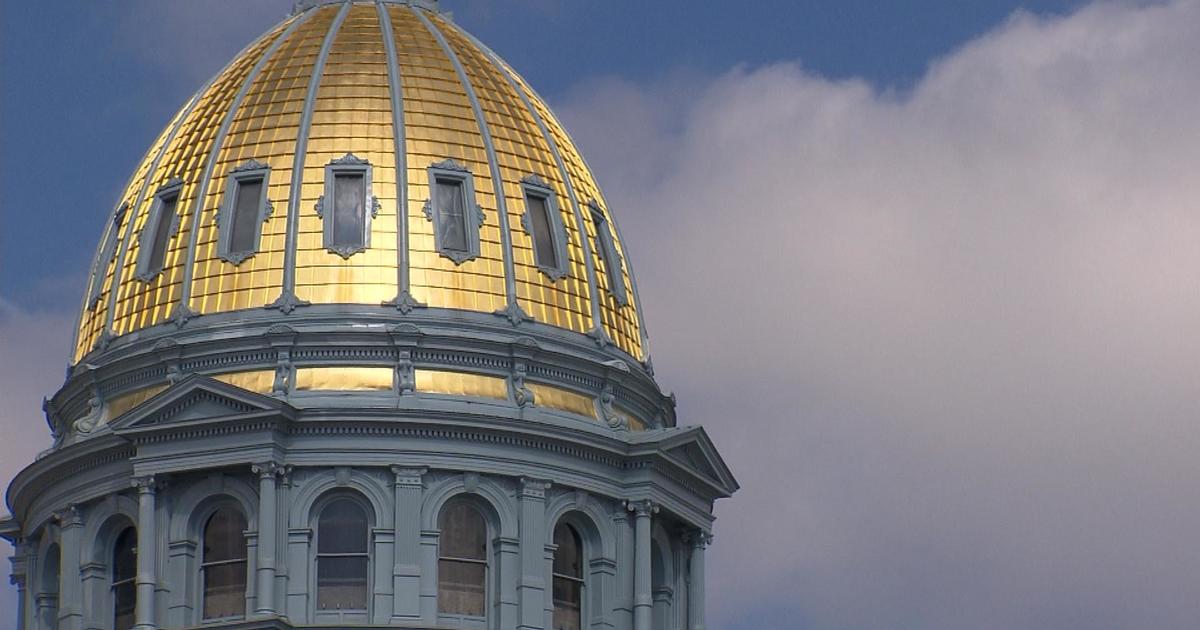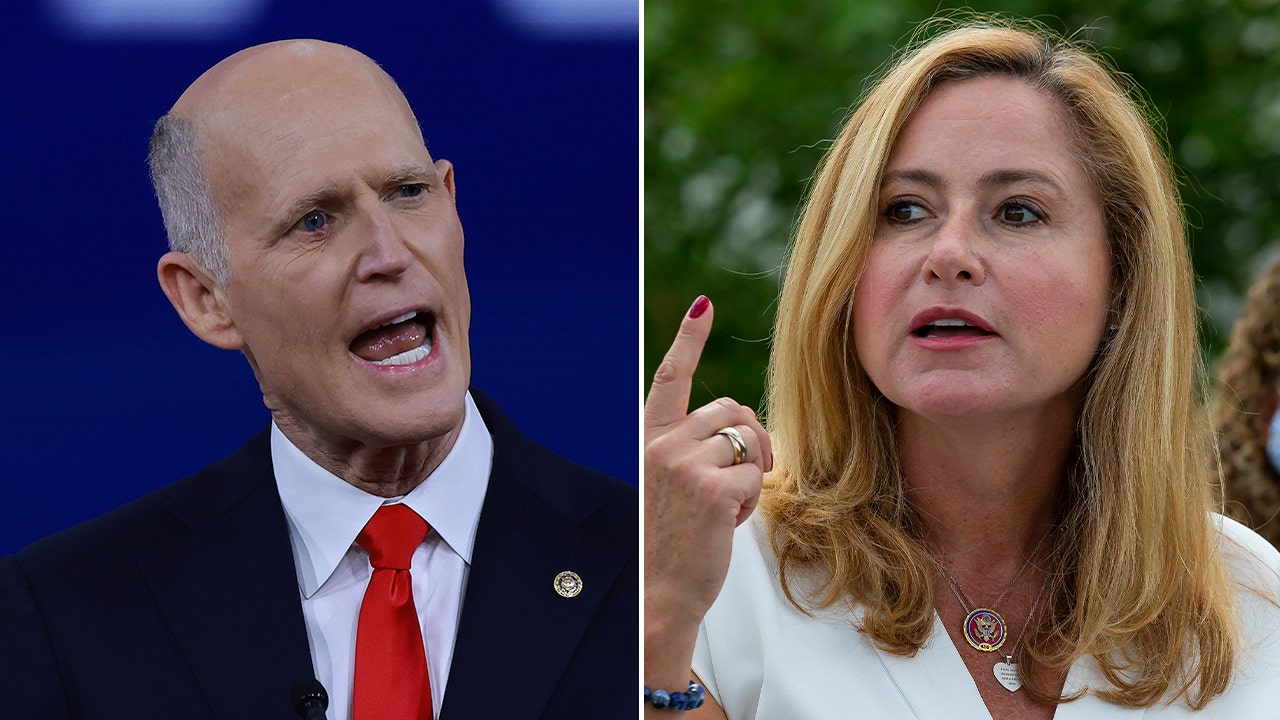Colorado
Long-awaited property tax relief bill drops at Colorado Capitol in the final days of the legislative session

State lawmakers will take up an 83-page property tax relief bill with just two weeks left in the legislative session.
The bill comes after four months of hearings by a bipartisan Commission on Property Tax, which was created by the legislature and charged with crafting long-term relief for homeowners while protecting services for local governments.
“We got feedback from county commissioners, local elected officials, everyday citizens,” says Democratic State Sen. Chris Hansen, who chaired the commission and is the lead sponsor of the bill.
It would allow residents to exempt 10% of their home’s value — up to $75,000 — from taxation.
Hansen says that adds up to significant relief, “It equates to nearly $800 mission in additional tax relief.”
He says it’s the equivalent of lowering the state assessment rate to 6.35%. But critics say, if the rate was actually lowered, it couldn’t be raised without voter approval.
They say the bill allows lawmakers to adjust the tax relief at any time.
“The legislature is still playing games with this and this is why I think ultimately, we’re still going to have to go to the ballot to provide real property tax relief,” says Michael Fields with Advance Colorado.
The conservative group is pushing ballot measures to cut the residential assessment rate to near-2022 levels and then cap future revenue growth at 4% year over year while protecting education funding.
“If the state can backfill, then we think they should. Backfill any local districts that need to see that backfill,” says Fields. “Six hundred bills come up a year. They’re putting more and more money into things that aren’t local services.”
Fields says 39 other states already have property tax caps. But Hansen points to California as an example of why they’re a bad idea: “The commission put in a lot of hard work and we’ve come up with, I think, a much more balanced approach, and the commission voted almost unanimously to say ‘no’ to hard caps.”
The bill would also protect education funding while partially backfilling special districts like fire and ambulance. Local governments would also receive some backfill but only for three years. The money would come from the state education fund, state reserve, general fund and TABOR — or Taxpayer Bill of Rights — surplus.
The bill doesn’t specify how much of the backfill will come from TABOR refunds, but that could be a sticking point.
The measure also allows homeowners to defer any growth in their property taxes until they sell their homes and lowers the commercial assessment rate to 25.5% over five years.

Colorado
Austin Bluffs Parkway closure could be devastating for one Colorado Springs business owner

COLORADO SPRINGS, Colo. (KKTV) – For the last nine years, Rob Fraley has owned Doug’s breakfast and lunch. Serving up large portioned meals in his New Mexico-themed diner.
Aliens and other out-of-this-world themes can be seen throughout the restaurant.
“It’s been a labor of love, and it’s been in my retirement,” Fraley said. “This is my retirement.”
Fraley says the construction work being done on Austin Bluffs Parkway could greatly impact his bottom line.
“People avoid the area, you know. Our normal, you know, foot traffic coming in is down by, you know, 50, 60, 70 percent during the week,” Farley said.
The closures and traffic patterns have already begun; the first step of prep work has started and is expected to last until the 13th. The water valve installations take place from the 14th to the 17th.
With road restoration taking place from the 24th through June 7th. Fraley says despite the difficulties he anticipates, his place will stay open.
“Don’t be afraid to, you know, come on in here and say hi,” Fraley said. “And, you know, we’ll give you a great meal. And, you know, we do appreciate every person walking through our door.”
Fraley says you can still visit Doug’s during regular business hours for breakfast and lunch. He also says you can still get to his restaurant from Austin Bluffs, it might just take a little more time.
Copyright 2024 KKTV. All rights reserved.
Colorado
Victim seriously injured in Colorado Springs shooting

COLORADO SPRINGS — A person is recovering from serious injuries after being shot in Colorado Springs Saturday night.
The shooting was reported just after 8 p.m. at an address on Sandalwood Drive, which is near E. Fountain Boulevard and S. Murray Boulevard on the city’s southeast side.
Police say several vehicles and a building were hit by bullets, and they found shell casings in the area.
The victim is expected to survive.
No suspect information has been released, but police say they do not believe the shooting was random.
Colorado
As Colorado legislative session winds down, property tax reform is still in the air, but progress on other fronts

For the second year in a row, the sounds of Cinco de Mayo echoed into the Capitol as lawmakers toiled on a Saturday to find common ground on proposed reforms to state land use and property tax policy.
The 120-day legislative session ends Wednesday, and lawmakers are still wrestling with some of the marquee proposals of the session, though with some breakthroughs on issues that had threatened to chew up valuable time — while other potential hot spots emerged.
The Senate passed Saturday a significantly narrowed ban on minimum parking requirements, one of the proposed land use reforms that emerged from the failure of last year’s omnibus proposal. The original bill had aimed to ban parking minimums throughout many of Colorado’s cities and suburbs. To tone down opposition, sponsor Sen. Nick Hinrichsen, a Pueblo Democrat, limited the ban just to areas along transit corridors. (Senators also ribbed Hinrichsen by offering an amendment that would remove his parking spot at the Capitol.)
“It will save a lot of money for builders, and they’ll be able to offer more product in the form of affordable housing, to actually build housing, as opposed to building parking and housing for folks that don’t necessarily want any parking,” Sen. Kevin Priola, a Henderson Democrat and bill sponsor, said.
The proposal, House Bill 1304, will now need to return to the House for reconsideration. Meanwhile, two other major land use proposals — one to boost the number of accessory dwelling units through the state and another to increase density along transit corridors — still need to formally pass the Senate after passing the House. Some senators have raised concerns about both as possibly stepping on local control.
Meanwhile, lawmakers negotiating a proposed long-term reform to property taxes continued to run around the Capitol to find a deal in the waning days. It needs to be introduced on Monday at the latest to have enough time to clear the building before the end of the regular session — and stave off another potential special session on property tax.
In addition to filling a gap in tax policy left by the repeal of the Gallagher Amendment and giving property owners a break on rising property taxes, they’re trying to head off ballot initiatives that would severely cap property tax collections. Backers of the initiatives argue it’s about keeping the government from growing faster than paychecks and keeping homeowners solvent. But state officials, including some elected Republicans, warn it would lead to draconian cuts to state and local government services.
Parties on all sides of the negotiation say they’re closing in on a deal, but it is still being tuned — and not guaranteed.
“We’re pushing really hard,” said Dave Davia, president of Colorado Concern, a business group backing some of the initiatives, adding that they’re hoping for a legislative solution.
Other priority bills for Democratic leadership continued apace Saturday.
The Senate formally passed a pair of bills to reduce emissions from oil and gas production and levy a per-barrel fee to pay for transit and wildlife habitat. The bills were introduced this week to ease simmering tensions between environmental groups, legislators and the industry and end dueling legislation and ballot initiatives affecting the industry. They will now go to the House for consideration.
Another bill, to put a 6.5% excise tax on guns and ammo in Colorado, also cleared a key Senate committee after concerns about its movement through the chamber boiled over into the public. The tax would raise an estimated $39 million a year and go to victim services and behavioral health programs.
The Democratic Women’s Caucus of Colorado publicly accused Sen. Kyle Mullica, a Thornton Democrat, of holding up the bill and threatening to kill it. He called the letter full of “falsehoods” and said the bill was merely going through standard amendment negotiations. He praised advocates and bill sponsors before voting yes on the bill in committee.
Meanwhile, the amended bill raised the hackles of Sen. Kevin Van Winkle, a Highlands Ranch Republican, because it removed school security as a possible use for the excise tax. He promised “vigorous” debate on the Senate floor if it isn’t replaced — a potent threat as lawmakers race against the Constitutionally required end of the session.
Voters will also have the chance to remove defunct language in the Colorado Constitution defining marriage as between a man and woman, after the House approved a referred measure Saturday. It already cleared the Senate. Referred measures to amend the state Constitution need at least two-thirds support in each chamber to pass. It passed with bipartisan support in the Senate, but near party lines in the House, where Democrats hold a supermajority.
The proposed amendment would remove a ban approved by voters in 2006. It has been unenforceable since 2015, when the U.S. Supreme Court legalized same-sex marriage nationwide with its ruling in Obergefell v. Hodges. A majority of voters will need to approve the proposal this November for it to take effect.
Stay up-to-date with Colorado Politics by signing up for our weekly newsletter, The Spot.
-

 Politics1 week ago
Politics1 week agoColumbia University’s policy-making senate votes for resolution calling to investigate school’s leadership
-

 News1 week ago
News1 week agoBoth sides prepare as Florida's six-week abortion ban is set to take effect Wednesday
-

 World1 week ago
World1 week agoBrussels, my love? MEPs check out of Strasbourg after 5 eventful years
-

 Politics1 week ago
Politics1 week agoHouse Republicans brace for spring legislative sprint with one less GOP vote
-

 World1 week ago
World1 week agoAt least four dead in US after dozens of tornadoes rip through Oklahoma
-

 News1 week ago
News1 week agoPro-Palestinian campus protesters face looming deadlines and risk of arrest
-

 Politics1 week ago
Politics1 week agoGOP Rep. Bill Posey won't seek re-election, endorses former Florida Senate President as replacement
-

 Politics1 week ago
Politics1 week agoRepublican makes major announcement in push to grow GOP support from once-solid Dem voting bloc


/cdn.vox-cdn.com/uploads/chorus_asset/file/25434354/Screenshot_2024_05_05_at_10.54.59_AM.png)












